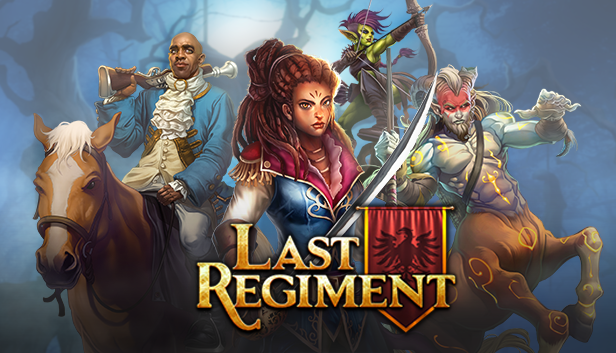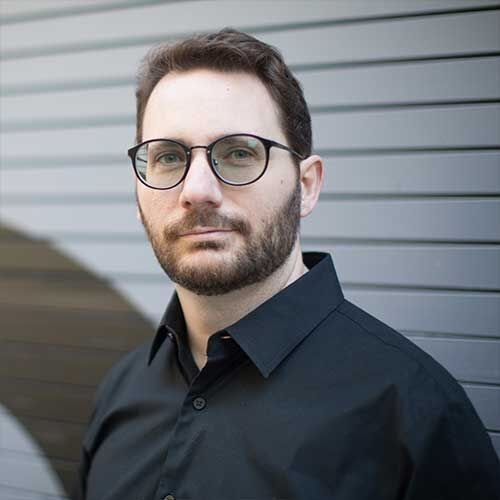
As a developer, you have a vision for the kind of game you want to make — what its themes and feel should be, what it should look like in motion. If you happen to double as an excellent artist, you can make your game’s visual style yourself to your exact mental specifications. If you’re not, though, you’re going to have to bring some artists on board. When that happens, how do you share that vision with another person? How do you make sure they understand you, their own vision matching yours?
Chris Natsuume, Creative Director & Co-Founder of Singapore-based development studio Boomzap, has been creating games since 1992. He was producer on the original FarCry, and has been involved in the creation of dozens of games over the years. In his work on all of these projects, he’s had to bring artists, developers, and more together on a singular vision for each project, finding tools and language that will help an outsider come to that same style and view as the rest of the team.
Decades of work in creating these connections with people and helping clarify what they’re doing together has resulted in a great deal of tips and advice for other developers looking to bring new talent to their project. At GameDaily Connect Asia in Shenzen from November 10-12, Natsuume willl talk about how to work with artists as a developer, and how to help them see that same vision for a project.

This is a vital skill to have, according to Natsuume. “One of the most important things game designers do is to work with artists to realize the combined team vision for the product. Failures in communication and understanding how to work with artists on the part of designers is probably the easiest way to lose months, or even years, in a production process, and dramatically increase a budget for little gain,” he noted.
You know your own vision for your game, to be sure. Getting that exact idea across can be challenging without the right language and communication tools, though. You need to be specific about things you may have only felt intuitively for your project, and will have to develop concrete terms for what you want from your artists. Can you describe the visual style you need? Put it into words so another can pick up on it? It’s a constant challenge, but one Natsuume has been solving for some time.
“As somebody who’s been working in this role for well over 25 years now, I’ve developed a number of tools and processes for getting the most work done as quickly as possible, which my talk will cover. This will be valuable not only for designers, but especially for producers, project planners, game directors, and of course artists and animators,” said Natsuume.
These challenges are just some of the many that Natsuume has faced down over the course of his career and through his work at Boomzap. “I’ve been the Creative Director of Boomzap for over 15 years now. For me, the experience has not just been about development and design, but about entrepreneurship and the challenges of running a small tech company. However, unlike other tech industries, the games industry is entertainment. This means it moves even faster than the rest of the technical Industries. Every year is a new challenge and a new set of learnings,” said Natsuume.
Despite these challenges, Natsuume has always thrown his all into pushing through them. In a story he related to Rappler, he shows just how committed he is to finding success with Boomzap. “Starting Boomzap was rough. We made a few games that simply didn’t do well and we had a hard time making ends meet. Actually, Allan Simonsen (Boomzap co-founder) and I started the company while I was still in graduate school and we’ve never had any investment, so we were really bootstrapping,” said Natsuume.
“At one point, when we were really low on money, I actually went down to Tacoma and enrolled in an experimental drug study where I had to live in a research facility for a month and test some kind of anti-cancer drug. I think it paid like $3000 or something like that, but they had wireless Internet there so I could still work. I actually built a bunch of the levels for Jewels of Cleopatra there, working at a laboratory table on my laptop with an IV hooked up to my arm-taking blood. I still have scars on the back of my neck where they cut 3 big hunks of flesh out of me to see how much of the drug was left in my skin tissue. We used the money to pay our first artist, who is still with us. When he complains about how hard we work him, I show him the scars,” he continued.
This undeniable passion has been what has kept Natsuume working in games, and what he is looking for from his own team. This is especially true in an industry where he feels that the business side is creeping in, much to the detriment of games. “I think a lot of what’s happening right now in the industry is very short-sighted. I think we’re willing to burn out users and try to keep them for money for what are, in many cases, really poor gameplay experiences,” Natsuume said in an interview with PocketGamer.biz.
“People focus a lot on things like retention and monetisation, but you don’t hear people talk about fun very much anymore. At some point, this is no longer a tenable period where, if we fail to provide quality content, sooner or later our audience will move on to some other form of entertainment,” he continued.
Natsuume would like to see a return to this kind of passion in games – hence his interest in finding that cohesive vision with artists. “I made my first game in 1992. Back then, everybody in the games industry was in the games industry because they love games,” he said. “Everyone that came from a gaming background learned how to do business, how to do marketing and they did because it was necessary. Now, it’s the opposite. You meet so many people who come from a business or marketing background and they think that there’s a ton of money to be made being in games.”
“Sure, they know the business, they know the market, but they don’t know anything about games. This has radically changed the kinds of games being made now because they are no longer being made because of some great, fun idea. They are being made because someone wants to make money out of them. Obviously, I don’t consider this a particularly positive development,” he continued.
Finding that passion and connection – making your artists feel that connection with your work, and making your team share in that excitement that made you want to create your game – is what Natsuume wishes to help developers with. As a business decision, and as something that will simply make your game better and more fun, it’s a vital one you’ll need to make.
This is why Natsuume has decided to give a talk at GameDaily connect, having seen the connections that come from the conference each year.
“I have attended the GameDaily events for years, since the beginning of Casual Connect over a decade ago. For years it has been a great chance to catch up with all of my friends in the industry. The casual games industry changes so fast it’s hard to even understand what’s happening without these periodic chances to share information. These events create a great forum not only for having official business meetings and attending lectures but for having dozens of informal meetings with peers in the industry that are often far more valuable,” he said.
That it’s taking place in China, a place of huge possibilities in games, is even better. “The opportunities and challenges in China remain as they have been for years: The Chinese market is absolutely enormous, and Chinese game players are some of the most active in the world,” Natsuume remarked.
It’s also key to understand the challenges that come from China as well. “Conversely, the Chinese market has a number of rules that need to be followed and understood. The Chinese government has an enormous influence over what can or cannot be done in China, and that needs to be understood. The distribution networks are different. The advertising is different. And perhaps most importantly, China now has some of the best game developers and game publishers in the world. These people understand that market far better than most people outside of China do. Trying to compete in China without some form of access to that expertise is probably a recipe for failure,” said Natsuume.
To save yourself time and effort, and to make the best game you can, you owe it to yourself to work towards finding how to best share your vision with artists. You need to find out how to bring someone into your thoughts and to share in that passion that made you wish to create to begin with. Then, together you can help bring your game to life as you envision it, contributing something fun and positive to the world of games. And Natsuume has some handy advice on just how to do that.
Interested in attending GameDaily Connect Asia 2019? You can register right here, and don’t wait too long, as discounts on tickets are available only up until November 1.
 GameDaily.biz © 2024 | All Rights Reserved.
GameDaily.biz © 2024 | All Rights Reserved.